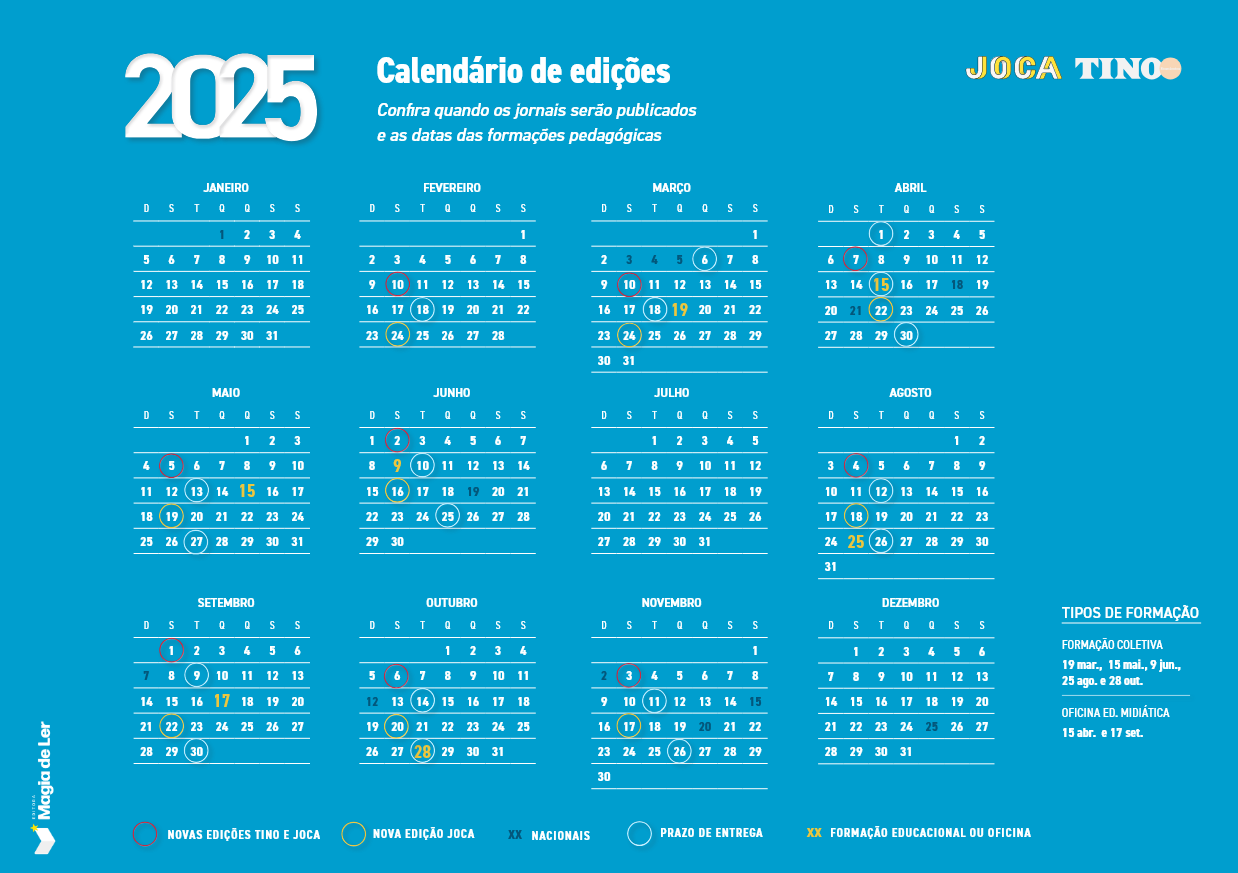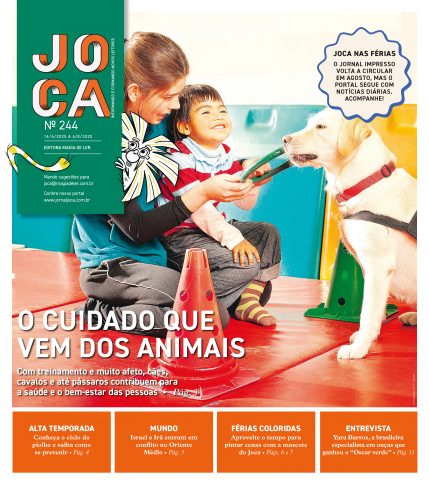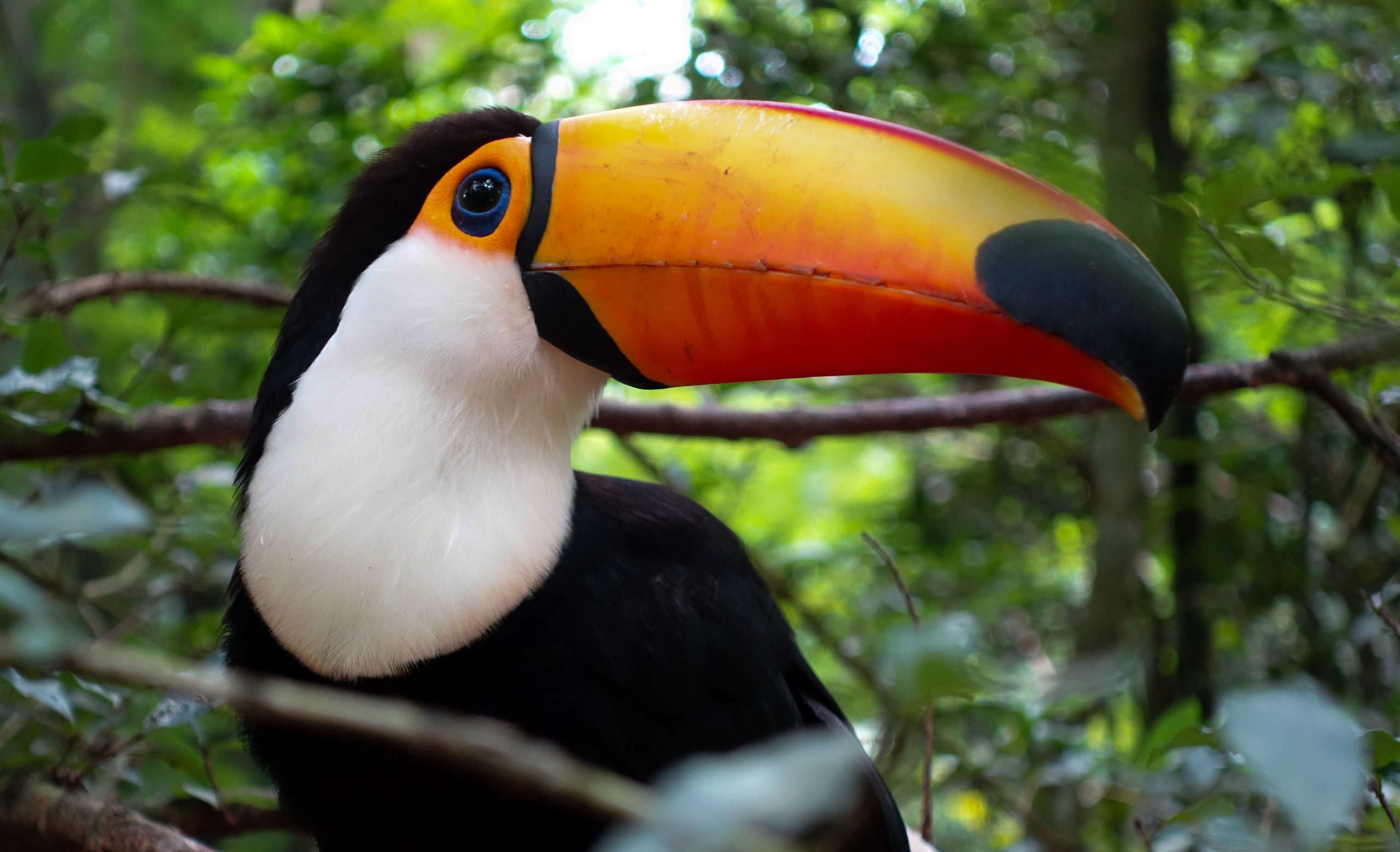In English
18 de março de 2021
Stories of Human Coexistence – Level 3
Article published in Joca 166

Júlio Emílio Braz , who was born in Minas Gerais, became a writer after producing comic book scripts for horror magazines. He is 61 today and has over 160 published books, scripts for television programs, including “Os Trapalhões”, and several literary awards – including the Jabuti, which is one of the most important in Brazil.
After reading one of his books, Memórias de um País Distante (Memoirs of a Distant Country), three students from the Portuguese course at Hudson High School, in Massachusetts, in the United States, contacted the author to find out more about him. Check out the interview that Rebeca da S. (15 years old), Fernanda F. (16 years old), and Lucas S. (17 years old) conducted with Júlio Emílio Braz below:
What was your primary reason for becoming a writer?
As far back as I can remember, I have always been crazy about reading, and later on, I fell in love with storytelling. It is not even about telling the story itself, but rather, about seeing how people feel involved and sincerely delighted by what we write. I believe that it is the ability to invest in and improve humanity itself that motivates and inspires people to keep reading, watching ballet performances, listening to music.
What influence does Minas Gerais have or had in your life / career?
I grew up in a world filled by people who couldn´t read and write but were geniuses, people who, in many cases, did not spend a single day in a classroom, but who were imbued with wisdom pulled out by forceps [a way to refer to something being “pulled out” by force] from their daily sacrificed lives. They were my first “books” and, at the same time, my first masters of writing because of the countless stories they told me, my sister, and a host of cousins as well as neighbours.
How old were you when you wrote your first book?
I have two answers for this: the first book, which was not published, was a crime story whose title I no longer remember. I wrote it when I was between 15 and 16 years old. The first book that was actually published is Saguairu, in 1988. It is the story of a hunt in Mato Grosso state’s wetlands, and awarded me my first literary prize in 1989, the Prêmio Jabuti da Câmara Brasileira do Livro, under the “new author” category.
Where do your ideas to write so many books come from?
I am basically a peripatetic human being, that is, I learn and discover life by walking. Therefore, my sources of inspiration are related to my contact with what is human. I gather ideas from what I see, hear, and experience. I need to be around human beings, talk to them, and listen to them just as much. I love walking, riding buses, trains, subways, taxis, and even ferries (even though I don’t know how to swim). I love to “make small talk”. I also read a lot: four newspapers a day, in addition to a lot of Brazilian and some international magazines geared towards the study of history, since I am a history professor. My day-to-day is also a source of inspiration.
Among your books, which one do you have a special connection with?
My favourite book is Crianças na Escuridão (Children in the Darkness). Firstly, because it speaks primarily of children and, unfortunately, of those who live in the darkness of the streets and have a simpler expectation of life – which is to have a roof over their heads and parents who love them. I come from a poor family and lived in the slums. I am still not a millionaire, but I have always had my family. Secondly, because I believe that everyone has the right to be happy and that there is no happiness without knowledge and reading, without a good understanding of life and the facts of life. Readers are generally able to understand certain simple things in life, starting with the fact that we should only bring a child into the world if we take on a minimum level of responsibility (for him/her). If we are in the world to try to be happy, doesn’t it seem evil to bring children into the world knowing in advance that they will be unhappy? And lastly because I believe in art’s social responsibility. Whether we like it or not, believe it or not, we are in our readers´ souls, interacting with them and their countless personal and social reflections. “We make up your mind ” just by writing a line on a sheet of paper, and I think I can contribute to not add to the number of irresponsible parents by creating books that address the suffering of abandoned children, which is the theme of Crianças na Escuridão.
Could you give readers a piece of advice?
I love to say to people: “Whoever dares, wins!” I don’t know if it would work for everyone, but I’d rather fail having tried than regret later that I did not even try, whatever it is.
Questions
1) What is the name of the first book published by Julio?
a) Crianças na Escuridão
b) O Escuro das Crianças
c) Saguairu
d) He doesn’t remember.
2) What did you think of the author´s advice?
Ixi! Você bateu no paywall!
Ainda não é assinante? Assine agora e tenha acesso ilimitado ao conteúdo do Joca.












Você precisa fazer o login para publicar um comentário.